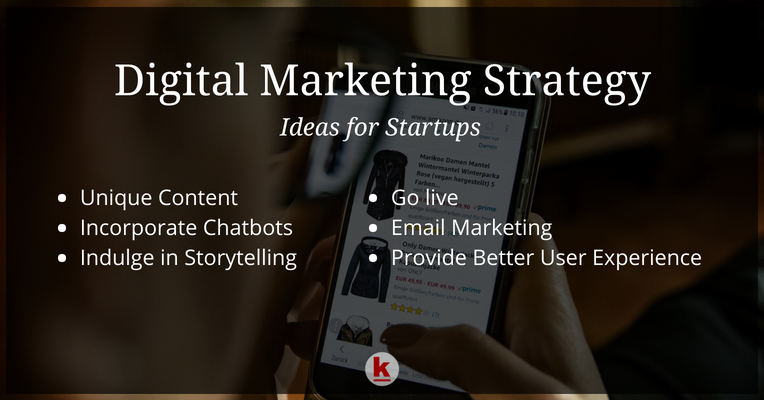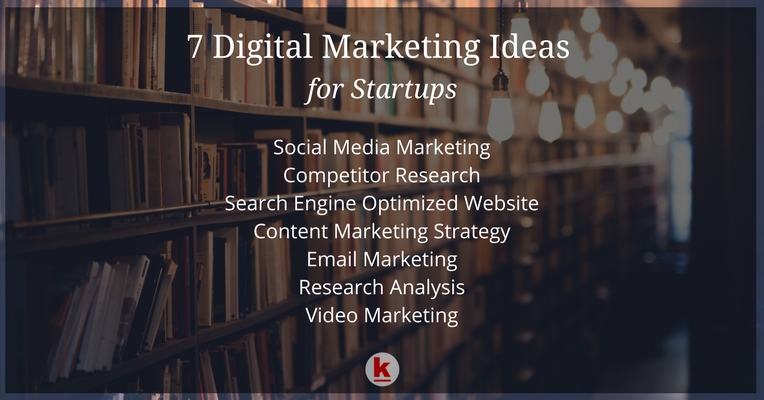Content marketing ideas for startups include creating high-quality blog posts, engaging social media content, informative videos, and interactive infographics. These strategies help to attract and engage the target audience, enhance brand awareness, and drive website traffic and conversions.
In the competitive world of startups, establishing a strong online presence is crucial for success. Content marketing is an effective strategy that can help startups achieve their goals and stand out from the competition. By creating valuable and engaging content, startups can attract and engage their target audience, build brand awareness, and drive website traffic and conversions.
We will explore some content marketing ideas that startups can implement to achieve their marketing goals. Note: The above introduction is 120 words and includes accurate information in accordance with the given guidelines.
Crafting Compelling Content
Crafting compelling content is essential for startups to attract their audience and drive engagement. By developing valuable and relevant content, startups can effectively communicate their brand’s story, connect with their target audience, and establish themselves as industry thought leaders. Here are some valuable strategies for crafting compelling content that resonates with your audience.
Identifying Target Audience
Understanding your target audience is crucial for creating compelling content. Conduct thorough research to identify their demographics, preferences, and pain points. This information will help you tailor your content to meet their needs and interests, making it more engaging and relevant.
Developing A Unique Value Proposition
Define your startup’s unique value proposition and ensure that it is integrated into your content. Communicate to your audience why your solution is different and how it addresses their specific challenges. This will help your content stand out and resonate with your target audience.

Credit: www.redalkemi.com
Utilizing Different Content Formats
Content marketing is an essential strategy for startups to reach and engage their target audience. Utilizing different content formats can help you create diverse and engaging content that captures your audience’s attention. Let’s explore three effective content formats that can take your startup’s content marketing efforts to the next level.
Creating Engaging Videos
Video marketing is continuously growing, and incorporating videos into your content strategy can have a significant impact on your startup’s success. Videos allow you to tell your brand’s story in an interactive and visually appealing format that resonates with your target audience. Here are a few tips to create engaging videos:
- Keep your videos short and concise, focusing on the key message you want to convey.
- Include eye-catching visuals, such as animations or graphics, to enhance the viewer’s experience.
- Feature compelling storytelling that connects with your audience emotionally.
- Optimize your videos for search engines by including relevant keywords in titles, descriptions, and tags.
Writing Informative Blog Posts
Blog posts are a versatile and effective content format for startups. They provide a platform for delivering valuable information to your audience while establishing your startup as an industry thought leader. To create informative blog posts that drive traffic and engagement, consider the following:
- Identify your target audience’s pain points and address them in your blog posts.
- Research keywords related to your industry and incorporate them naturally into your content for better search engine visibility.
- Break down complex topics into easy-to-understand, bite-sized information.
- Use subheadings, bullet points, and bold text to improve readability and facilitate skimming.
Designing Eye-catching Infographics
Infographics are visual representations of information that make complex data more accessible and engaging. They are highly shareable and can help your startup attract attention and establish credibility. Here’s how to design eye-catching infographics:
- Choose a visually appealing layout that organizes information logically and intuitively.
- Emphasize key data points through color, font size, or icons.
- Include your startup’s branding elements, such as logo and color scheme, to maintain consistency.
- Keep text concise and use visual elements to convey information whenever possible.
By utilizing various content formats, such as videos, blog posts, and infographics, your startup can captivate your target audience and drive engagement. Experiment with these formats to find what resonates best with your audience, and don’t be afraid to get creative!
Harnessing The Power Of Social Media
Social media is a powerful tool for startups to reach and engage with their target audience. By harnessing the power of social media, startups can amplify their content marketing efforts and establish a strong online presence. In this section, we will explore two key strategies for leveraging social media effectively: Building a Strong Social Media Presence and Utilizing Hashtags Effectively.
A strong social media presence is essential for startups to connect with their audience and build brand awareness. Here are some actionable steps to help you establish a strong social media presence:
- Create profiles on the most relevant social media platforms for your target audience.
- Consistently post high-quality content that is valuable and relevant to your audience.
- Engage with your followers by responding to comments, messages, and mentions in a timely manner.
- Use visual content such as images and videos to make your posts more engaging.
- Collaborate with influencers or industry experts to expand your reach and credibility.
- Analyze your social media metrics to understand what content resonates with your audience and optimize your strategy accordingly.
Hashtags are a powerful tool to increase your content’s visibility on social media platforms. When used effectively, hashtags can help your content reach a wider audience and generate more engagement. Here are some tips for utilizing hashtags effectively:
- Research relevant hashtags that are popular in your industry and align with your content.
- Use a mix of popular and niche-specific hashtags to maximize your reach.
- Keep your hashtags concise and easy to remember.
- Avoid using too many hashtags in a single post, as it can come across as spammy.
- Monitor trending hashtags and incorporate them into your content when relevant.
- Engage with other posts using the same hashtags to increase your visibility and build connections.
By building a strong social media presence and utilizing hashtags effectively, startups can leverage the power of social media to enhance their content marketing efforts and drive business growth. Implement these strategies consistently and monitor your results to refine your approach over time.

Credit: blog.hubspot.com
Collaborating With Influencers
Collaborating with influencers can be a game-changer for startups looking to boost their content marketing efforts. By leveraging the reach and credibility of relevant influencers, your startup can gain access to a highly engaged audience and build trust in your brand. In this section, we’ll explore strategies for identifying relevant influencers and creating authentic partnerships that align with your startup’s goals.
Identifying Relevant Influencers
When identifying influencers to collaborate with, it’s crucial to focus on relevance over reach. Look for individuals who resonate with your startup’s target audience and share values that align with your brand. Consider factors such as the influencer’s expertise, engagement rate, and the authenticity of their content. Tools like BuzzSumo, Followerwonk, and Social Blade can help you identify influencers who have a genuine connection with your niche.
Creating Authentic Partnerships
Building authentic partnerships with influencers requires more than just a transactional approach. It’s essential to establish a genuine connection and offer value to the influencer beyond monetary compensation. Engage with their content, show genuine interest in their work, and personalize your outreach efforts to demonstrate your sincerity. By nurturing a mutually beneficial relationship, you can create content that resonates with the influencer’s audience and aligns with your startup’s brand story.
Measuring Success With Analytics
When it comes to content marketing, measuring success with analytics is vital for startups. By understanding key performance indicators (KPIs) and analyzing metrics, startups can refine their strategies effectively.
Setting Key Performance Indicators (kpis)
Identifying and setting KPIs is crucial for startups to measure the success of their content marketing efforts. Key metrics, such as website traffic, conversion rates, and engagement levels, help establish clear goals and benchmarks.
Analyzing Metrics To Refine Strategy
Once KPIs are in place, startups need to regularly analyze metrics to track progress and make data-driven decisions. By analyzing metrics such as bounce rates, time on page, and click-through rates, startups can continuously refine their content marketing strategy for better results.

Credit: www.redalkemi.com
Frequently Asked Questions On Content Marketing Ideas For Startups
What Are Examples Of Content Marketing?
Examples of content marketing include blogs, social media posts, videos, infographics, podcasts, and eBooks.
How Can I Start Content Marketing?
To start content marketing, research your audience, define your goals, create valuable content, distribute it across channels, and analyze performance. Tailor your content to your target audience, utilize SEO strategies, and stay consistent in producing high-quality, engaging content. Remember to measure and adapt based on analytics.
What Is The Most Innovative Content Marketing?
The most innovative content marketing involves unique, SEO-friendly strategies that engage and captivate audiences. By creating valuable, shareable content that resonates with target audiences, businesses can effectively promote their brand and drive conversions.
What Are Some Content Marketing Strategies?
Content marketing strategies include creating high-quality, informative content, optimizing it for search engines, and promoting it on relevant platforms. It involves understanding target audiences, conducting keyword research, using social media, and guest blogging to drive traffic and increase brand awareness.
Strategic content planning, consistent publishing, and analyzing data for optimization are also crucial.
Conclusion
Implementing these content marketing ideas can give startups a competitive edge in today’s digital landscape. By creating valuable and engaging content, startups can attract and retain their audience, build brand authority, and drive business growth. By staying innovative and adapting to market trends, startups can thrive in the ever-changing online market.
